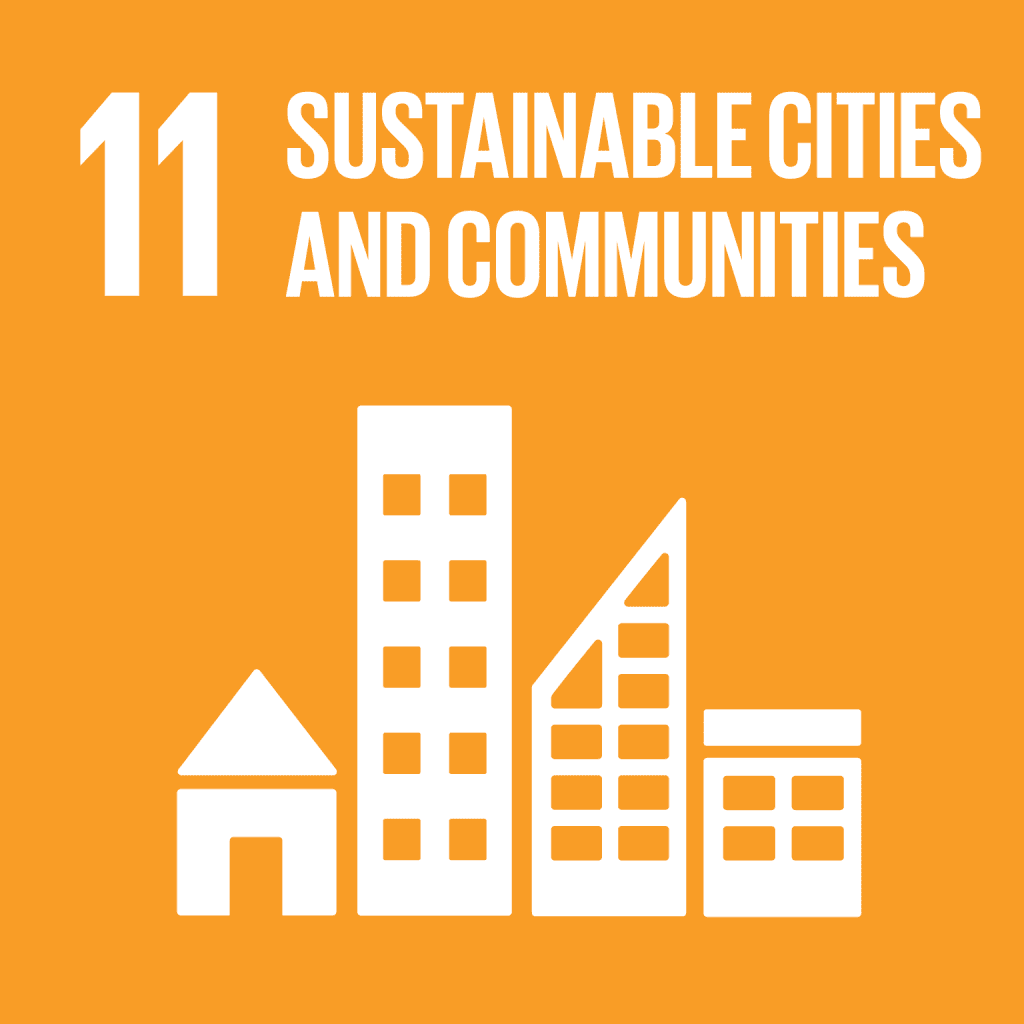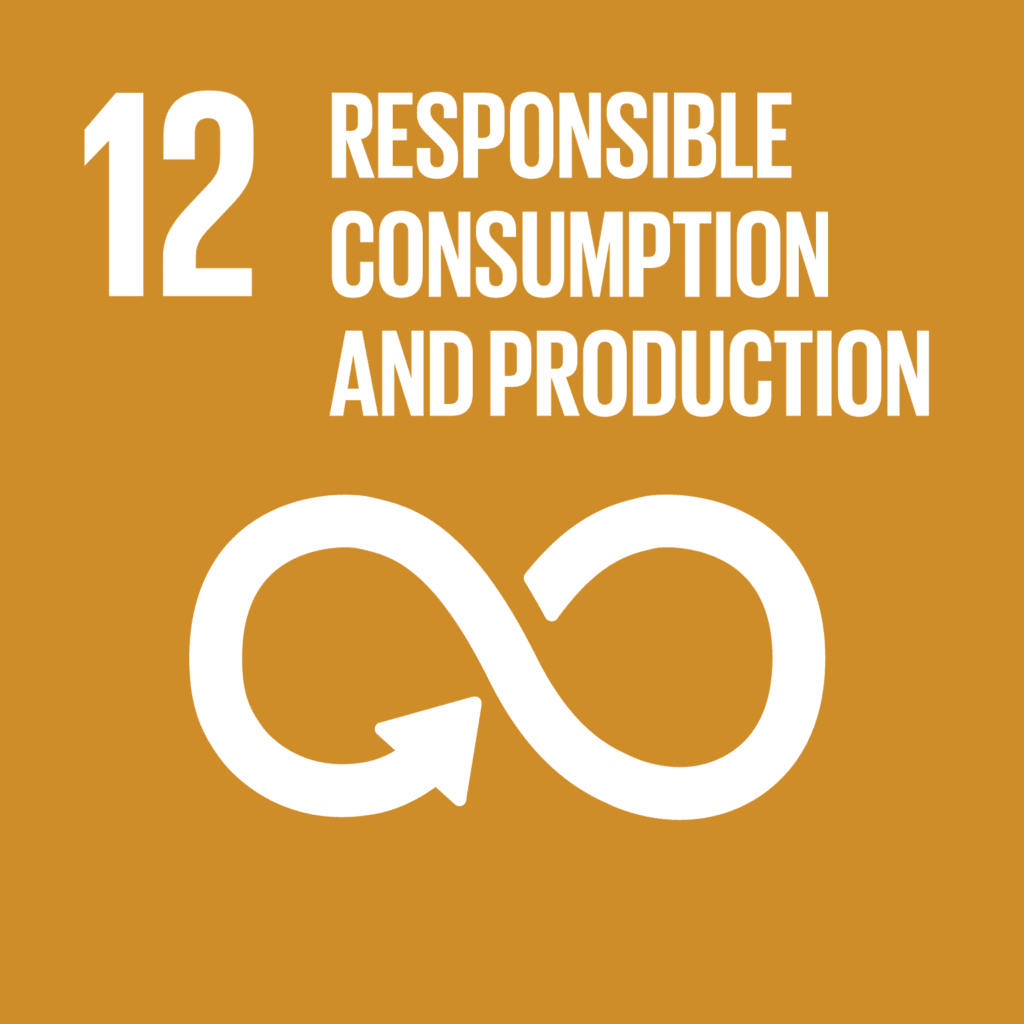Here we present the findings of a survey conducted among 255 staff focusing on their sustainability practices and awareness of the University’s sustainability efforts. It is pleasing to see this indicates a high level of commitment to sustainability among the respondents, with a majority engaging in sustainable practices regularly. Written by Katy Boom. Edited by Rosie Bramwell.
Staff Sustainability Practices
Energy Conservation: A significant majority of respondents (84%) always or most of the time turn off lights when leaving a room, and 60% always or most of the time switch off electrical appliances when not in use. As the university has changed its temperature settings for offices and classrooms to 19 degrees centigrade it is good to know that about half of the respondents (48%) always or most of the time set their thermostat to 19 degrees or lower during colder weather.
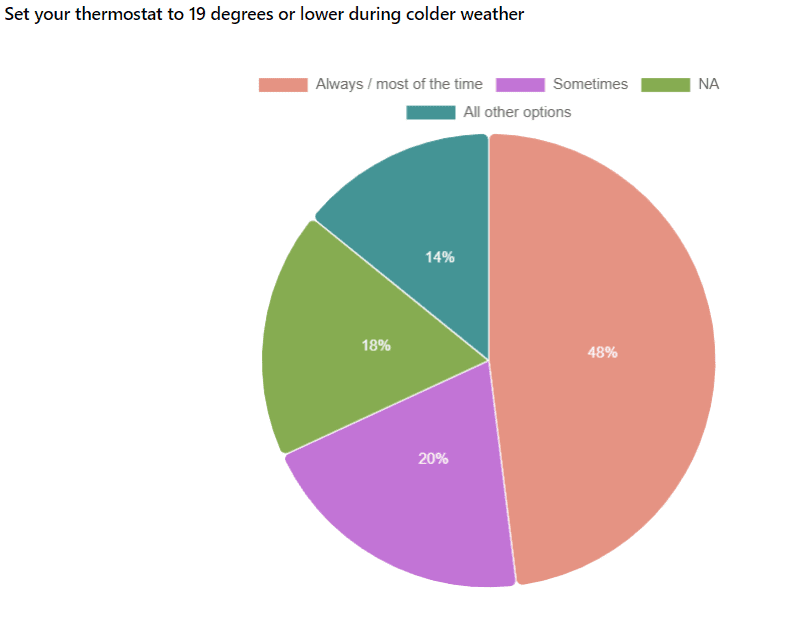
When it comes to Water Conservation: 83% of respondents always or most of the time use their washing machine only when they have a full load of clothes, and 42% always or most of the time limit their time spent in the shower. These are some of the best ways for people to save on money and carbon.
Whilst Waste Reduction has less of an impact on carbon reduction it’s great to know that 81% of staff respondents always or most of the time use a reusable water bottle, coffee cup, travel mug, etc. When it comes to Recycling 62% of respondents always or most of the time check recycling labels on products before deciding how to dispose of them. This is helpful, as contamination of waste streams by putting the wrong thing in the bin, like food or half-drunk coffee, can contaminate a whole commercial bin, so it’s great most people check this out before throwing things away.
However, only 22% always or most of the time shop for items with minimal packaging. Donations and Second-hand Purchases: 38% of respondents always or most of the time donate unwanted items, and 25% always or most of the time purchase something second-hand.
Areas, where we can focus our efforts, are to encourage more people to Repair and Maintain items rather than buy new. Only 16% of respondents always or most of the time repair a broken item or visit a local Repair Cafe.
Our efforts to increase biodiversity and opportunities to engage with nature on campus are not going to waste as 55% of respondents always or most of the time go for a walk or look at nature to relax.
Awareness of the University’s Sustainability Efforts
Energy Conservation: 71% of respondents are somewhat or very engaged with the University’s efforts to conserve energy, which is great. On travel, we could do more because 49% of respondents are somewhat or very engaged. Travel habits are notoriously hard to change, especially with poor public transport provision. We can do more to tell staff about Sustainable Food Sources, because only 41% of respondents are somewhat engaged, and 10% are very engaged with the University’s efforts to promote food from sustainable sources.
We can do more to promote our Carbon Literacy training because 48% of respondents are somewhat engaged, and 13% are very engaged with the University’s efforts to reduce carbon emissions.
Wildlife Management over half our staff are somewhat or very engaged with the University’s efforts to manage areas for wildlife.
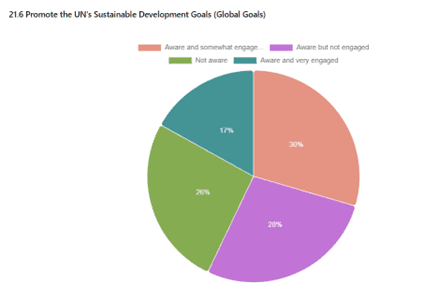
Promotion of UN’s Sustainable Development Goals: Just under half staff respondents are aware of the University’s efforts to promote the UN’s Sustainable Development Goals. Similar numbers note the work on embedding Sustainability in the Curriculum.
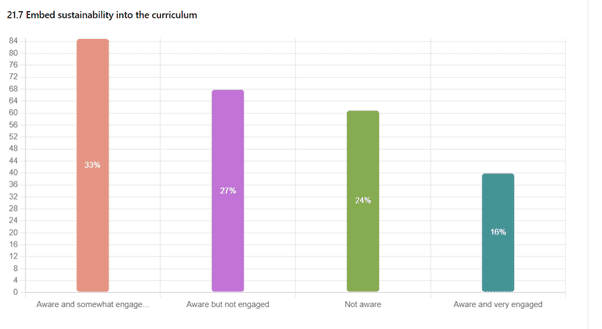
An area we can improve on is promoting Carbon Literacy Training, as around a third of respondents know we provide this.
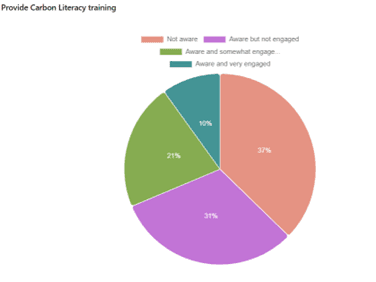
Another area to focus on in future is the Promotion of Fairtrade Products, as half of the staff know of the University’s efforts to promote Fairtrade products.
Conclusion
The survey does show staff sustainability culture is well embedded in the university, with a majority regularly engaging in sustainable practices. However, there is room for improvement in certain areas, such as shopping for items with minimal packaging and repairing broken items. Staff also show a high level of engagement with the University’s sustainability efforts, suggesting that these initiatives are reaching a significant portion of the University community. Further efforts could be made to increase awareness and engagement in areas such as Carbon Literacy training and the promotion of sustainable food sources. Overall, the findings suggest a positive outlook for sustainability within the University community, which is pleasing.
